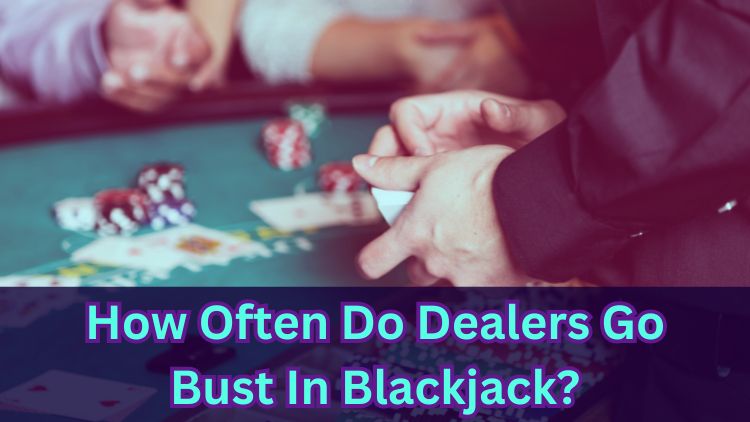
Blackjack is a popular card game where players aim to beat the dealer by having a hand value as close to 21 as possible without going over.
One important aspect to consider is the dealer's likelihood of going bust, which occurs when their hand exceeds 21. Understanding this may help players make more informed decisions during a game.
Players often wonder about the dealer's chances of going bust because it might impact how they choose to play their hand. Different factors, such as the dealer’s upcard, can influence these chances.
By exploring how often a dealer goes bust, players may gain a deeper understanding of the game’s dynamics. This understanding can contribute to maintaining a balanced approach to playing. Read on to learn more about this aspect of blackjack.
Do Dealers Go Bust In Blackjack?
In blackjack, dealers do go bust, which means their hand exceeds 21. This occurs because they must keep drawing cards until they reach at least 17. If their total goes over 21, all remaining players in the game win that round.
The likelihood of a dealer going bust varies depending on the card they are showing, known as the "upcard". For instance, if a dealer's upcard is a 4, 5, or 6, they have a higher chance of busting because they must draw more cards to reach the required total.
Conversely, if a dealer's upcard is a 7 or higher, they are less likely to go bust and might end up with a stronger hand. These situations may influence how players decide to play their own hands.
Understanding when a dealer typically goes bust might help players form strategies. Knowing the dealer's tendencies does not guarantee outcomes, but it provides perspective on game dynamics.
As always, individuals should keep in mind the importance of gambling responsibly and be mindful of their limits.
How Often Do Blackjack Dealers Bust?
The frequency of a dealer going bust in blackjack depends largely on the card they show at the start of each round, known as the "upcard". This card gives players insight into what the dealer might do next and how they might fare.
When a dealer’s upcard is low, such as a 2 through 6, their chances of busting increase. This is because they often need to draw additional cards to reach at least 17, which raises the likelihood of exceeding 21.
If the dealer has a high upcard, like a 7, 8, or 9, their chances of busting decrease. They are more likely to build a strong hand without going over 21. This information could help players make more informed decisions during the game.
Players should always consider the possibility of different outcomes and manage their choices accordingly. Remember, maintaining a balanced approach to play and adhering to responsible gambling practices remain essential. Understanding the odds may make the game more interesting, but it is always important to play within one’s means.
Does Everyone Win When The Dealer Goes Bust?
When the dealer goes bust in a game of blackjack, it usually means that those players still in the game win the round. However, not everyone at the table will automatically win.
Players must still be active in the hand at the time the dealer exceeds 21 to claim a win. The dealer is last in the round, so if a player's hand has already gone bust, they will have lost their wager, regardless of the dealer's outcome.
It is essential for players to stay mindful of their own hands and decisions throughout the game. Each choice can affect whether they are still in the running to win when the dealer goes bust.
The dynamics of blackjack may be interesting, and understanding what happens when the dealer busts offers valuable insights into the game. As always, players should remember the importance of balancing their play and keeping within their personal limits.
What Happens When The Dealer and Player Bust In Blackjack?
In blackjack, if both the dealer and a player bust, the player unfortunately loses. When a player's hand exceeds 21, it automatically results in losing their bet without consideration of the dealer's outcome.
If a player goes bust during their turn, the round ends for them regardless of what happens with the dealer's hand afterwards.
Understanding these outcomes may help players make clearer decisions about when to hit or stand. Even though the player's goal is to beat the dealer, going over 21 will result in a loss.
Keeping these rules in mind might assist players in staying engaged with the game while respecting their personal playing limits. Responsible gambling practices should always be kept in mind when playing.
*The information provided in this blog is intended for educational purposes and should not be construed as betting advice or a guarantee of success. Always gamble responsibly.
